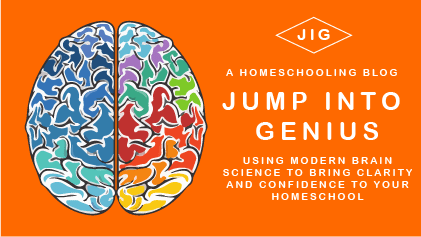What does loving your kids have to do with their brain health? Everything.
“Researchers at Washington University School of Medicine in St. Louis, found that children whose mothers nurtured them early in life have a larger hippocampus, a key brain structure that is essential to learning, memory and response to stress, according to a study published in the Proceedings of the National Academy of Sciences Early Edition.” - Medical Daily
Check out this picture of the brain scans comparing a well-loved three-year-old to that of a neglected three-year-old.
A picture is worth a thousand words, and I think the photo at the link above says enough. I don’t want to bore you with a long list of research studies connecting love and the brain health of a child. While the example above may be extreme, we can take it to heart in our own lives. We may not neglect our children, but do we always take the time to make sure they know how much we love them? Let’s explore what it means to love our kids.
Talking about love in our culture often amounts to little more than a reference to the feeling of elation invoked by romantic connections. But love is so, so, much more. Of course, when we talk about parental love we mean something different than when we speak of romantic love. But what, exactly, do we mean? Even abusive parents often think they love their kids. They are attached to them and they mistake wanting to have possession of their children for love. But attachment and love are not the same things. A parents duty is first to attach to the child, and then gradually, over time, detach, leaving a confident capable adult who is emotionally free from the entanglements of controlling, manipulative, or even abusive parents.
Love is a verb, an action. We love our kids with the daily actions we take to care for them. Much of this is instinctual. It is wired into the DNA of humanity to care for our young. We feed them, clothe them, create a safe environment in which they can explore their world. We teach them, from the time they are tiny babies, by interacting with them, talking to them, singing to them, cuddling with them, laughing with them. These are all manifestations of our love.
Sometimes they are adorable, or brilliant, or hilarious, and our heart jumps in elation and wonder. We often describe this heart-jump as the feeling of love. But the feeling of love is not the most important part of love, it is the action that counts.
Love is changing the diaper. Love is cooking the food. Love is cleaning the mess. Love is teaching them to clean the mess. Love is teaching them to cook the food. Love is all the little things we do every day to care and connect with our kids.
However, love is complex and includes much more than just the physical care and teaching of our children. One way to think of love is the giving of happiness to another.
“The essence of loving kindness is being able to offer happiness. You can be the sunshine for another person. You can’t offer happiness until you have it for yourself. So build a home inside by accepting yourself and learning to love and heal yourself. Learn to practice mindfulness in such a way that you can create moments of happiness and joy for your own nourishment. Then you have something to offer the other person.” - Thich Nhat Hanh
To reach this ability, to provide happiness for our kids, we have to start with our own self-care. Remembering, self-care is not selfish. Self-care means transforming our own souls for the betterment of all around us.
“Happiness can only be achieved by looking inward & learning to enjoy whatever life has and this requires transforming greed into gratitude.”
―St.
So how do we know if we are truly loving our kids? By checking in with ourselves to see if we are taking care of their basic needs, including the need for happy parents. Here is a handy graphic you can use as a reminder of what kids need, engaging in some of these activities with your kids just might boost your own happiness too!
Love, like anything in life, requires effort. We can all work on the next level of loving those around us. If you have a strong foundation with your kids, you can move to the next level by learning about love languages. Dr. Gary Chapman has created many books and resources, around the idea that we all have preferences when it comes to giving and receiving love. You can find books he wrote specifically for parents of children and teens, as well as a book that is written directly to teens. I read the basic book The Five Love Languages years ago and keep it in mind as a framework for making sure my kids feel loved.
I take a casual approach, not worrying over what each child’s primary love language is, as much as making sure I keep in mind all the ways they need to receive love. I think raising kids who know how to receive love in a variety of ways will help create adults who know both how to love and how to be loved. It is also important to let your children express their love for you also. Sometimes this means accepting a gift, even if they are giving you something precious to them, that you really don’t want.
If you aren’t familiar with the 5 Love Languages you can take a free quiz and get some basic info here.
Sometimes we take it for granted that our kids know we love them. Just like we can forget to express our love to our spouse. It is important to remember, that just because we are expressing love in the way we prefer, it does not mean that is what the receiver needs most. We need to express our love in the way our kids need so they feel loved. It may be obvious to us that we cook for them because we love them, but that may be lost on the child, especially if they are young.
Teaching kids how to love is part of loving them. Kids learn a lot by watching how we interact with other adults.
“If our parents didn’t love and understand each other, how are we to know what love looks like? There arn’t courses or classes in love. If the grown-ups know how to take care of each other, then the children who grow up in this environment will naturally know how to love, understand, and bring happiness to others. The most precious inheritance that parents can give their children is their own happiness. Our parents may be able to leave us money, houses, and land, but they may not be happy people. If we have happy parents, we have received the richest inheritance of all.” - Thich Nhat Hanh
While we do spend plenty of time chasing happiness in our culture, it is usually done in a materialistic or conditional way. We don’t place the responsibility for experiencing happiness and joy on ourselves. Instead, we look to things, “I will be happy when I have that new car, new house etc.” or to other people, “If my kids just behaved better I would be a happier mom”, “If my spouse ….I would be happy”.
We do not have to deny suffering or pain or remain in a constant state are exterior happiness. This is not what great teachers like Chrysostom and Thich Nhat Hanh had in mind when they spoke of happiness. But we do have to take the time to be grateful, for all the little joys and big joys alike that we often take for granted. Joy and suffering can coexist and experiencing them is part of being vulnerable and open to life, because life cannot be entirely void of either of these conditions.
It is our own responsibility to be happy. Objects and other people may have the ability to make us feel good, temporarily, but we are the only ones with the power to create the grateful, content, and peaceful heart we need to experience deep happiness. A great big part of loving our kids is taking care of this. If they don’t see us being happy, they won’t know how to be happy themselves. Of course, this doesn’t mean they won’t work it out as adults, but it will be much more difficult for them to figure out.
Finally, our children need us to separate them from our own happiness. They need to know that no matter how snotty, irresponsible, destructive, or dishonest they decide to be, our happiness is intact. They do not have the power to emotionally destroy the parent. This requires a great deal of objectivity when correcting them. Do we react to misbehavior from the place of our own emotions? Or do we respond with swift clarity and faith in the needed action? Action and reaction are two entirely different responses.
“How many parents experience the child’s reaction in terms of his being obedient, of giving them pleasure, of being a credit to them, and so forth, instead of perceiving or even being interested in what the child feels for and by himself?” - Erich Fromm
I know our culture does not generally equate love with objectivity. We think love means passion. But objectivity means taking a step outside of ourselves. It means thinking about a situation without regard to how it personally affects us. There have been times when other moms ask me for advice. I tell them what consequence I give to my children in similar situations, and the most heartbreaking response is, “I don’t have time for that”, or “That would be too much work for me.” (In response to simple suggestions such as taking away screen time or assigning an extra chore.)
Raising happy kids is work, ladies and gentlemen. There are no shortcuts. Doing what is right will not always be easy on the parent. Get over it. This is an entirely unobjective response. The parent is refusing to step out of the situation and therefore cannot see clearly what needs to be done. They are not even able to accept what needs to be done when told because they are emotionally attached to the idea that is “should be easy” or their kid, “shouldn’t be this way”. These are usually miserable parents, and they think they are unhappy because of their kids, but the truth is they wouldn’t know happiness if it bit them in the face.
The other bad answer is, “I tried that.” Really? For how long? How consistently? How we respond to our children’s need for correction and guidance is a continual process. You have to have faith in your methods, and apply them consistently over time. You can’t just give a consequence once and expect transformation in your child forever. Are you suddenly transformed or freed from your own bad habits and shortcomings because of one small, natural, consequence? Not likely.
To teach self-discipline, which is intrinsically linked to a person’s happiness and ability to love, we first have to put on our own pants and embrace our own self-discipline. So let’s quit the lazy parenting. Give the response your kids needs no matter how inconvenient or how much time you don’t have for it.
I want to end with a long quote from the book The Art of Loving by Erich Fromm.
“In terms of this discussion of the practice of the art of loving, this means: love being dependent on the relative absence of narcissism, it requires the development of humility, objectivity, and reason. One’s whole life must be devoted to this aim. Humility and objectivity are indivisible, just as love is. I cannot be truly objective about my family if I cannot be objective about the stranger, and vice versa. If I want to learn the art of loving, I must strive for objectivity in every situation, and become sensitive to the situations where I am not objective. I must try to see the difference between my picture of a person and his behavior, as it is narcissistically distorted, and the person’s reality as it exists regardless of my interests, needs, and fears. To have acquired the capacity for objectivity and reason is half the road to achieving the art of loving, but it must be acquired with regard to everybody with whom one comes in contact. If someone would want to reserve his objectivity for the loved person and think he can dispense with it in his relationship to the rest of the world, he will soon discover that he fails both here and there.” - Erich Fromm
There is a lot to unpack in the quote. Although there are no courses in love, I do encourage everyone to study love. Like any art, understanding helps you practice better.
Sources:
How To Love by Thich Nhat Hanh
https://quotes.thefamouspeople.com/john-chrysostom-4109.php
The Art of Loving by Erich Fromm


